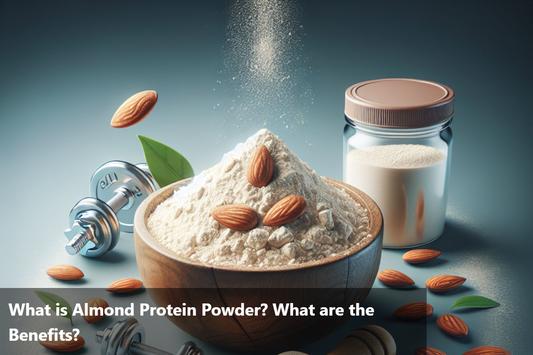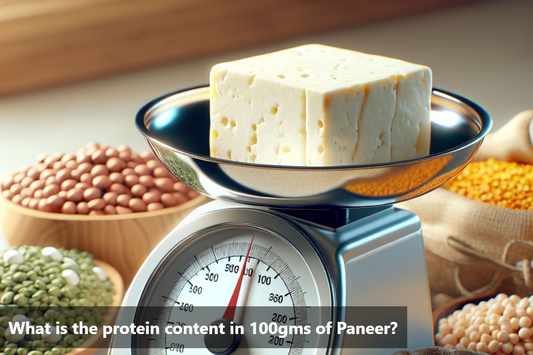Protein powder is a dietary supplement made from various protein sources, including whey, casein, soy, pea, hemp, and rice. It's designed to provide a convenient and concentrated source of protein, which is an essential macronutrient needed for muscle repair, growth, and overall body function. Protein powders come in various forms such as:
-
Whey Protein: Derived from milk, it is quickly absorbed and contains all essential amino acids.
-
Casein Protein: Also derived from milk but absorbed more slowly, providing a steady release of amino acids.
-
Soy Protein: Plant-based, complete protein suitable for vegetarians and vegans.
-
Pea Protein: Another plant-based option, hypoallergenic and easily digestible.
-
Hemp Protein: Rich in omega-3 and omega-6 fatty acids, also plant-based.
-
Rice Protein: Generally combined with pea protein to provide a complete amino acid profile.
What are Protein Supplements?
Protein supplements, including protein powders, bars, and ready-to-drink shakes, are products designed to help individuals meet their daily protein needs. They are particularly popular among athletes, bodybuilders, and those with higher protein requirements, such as pregnant women, elderly individuals, and people recovering from illness or surgery.
Why is Protein Important?
Protein plays several critical roles in the body:
-
Muscle Growth and Repair: Essential for repairing and building muscle tissues.
-
Enzyme and Hormone Production: Necessary for the synthesis of enzymes and hormones that regulate bodily functions.
-
Immune Function: Supports the immune system by contributing to the production of antibodies.
-
Energy Source: Can be used as an energy source when carbohydrate intake is low.
-
Transport and Storage: Helps in the transport and storage of various molecules.
The Need for Protein Supplements
Convenience and Accessibility
Protein supplements offer a convenient way to increase protein intake without the need for extensive meal preparation. This is particularly useful for people with busy lifestyles or those who need to consume protein immediately after a workout for optimal muscle recovery.
Dietary Gaps
Some individuals might struggle to meet their protein needs through diet alone due to dietary restrictions, preferences, or health conditions. Protein supplements can help fill these gaps.
For Specific Populations
-
Athletes and Bodybuilders: Higher protein requirements to support muscle growth and recovery.
-
Pregnant Women: Increased protein needs to support fetal development.
-
Elderly Individuals: Higher protein intake helps combat muscle loss associated with aging (sarcopenia).
-
People with Illnesses or Injuries: Protein is crucial for healing and recovery.
Common Myths About Protein Powder and Supplements
Myth 1: Protein Supplements are Only for Bodybuilders
Fact: While bodybuilders do use protein supplements to support muscle growth, they are beneficial for anyone needing to increase their protein intake, including athletes, elderly individuals, and people with specific dietary needs.
Myth 2: Protein Powders are Harmful to the Kidneys
Fact: For healthy individuals, there is no evidence to suggest that consuming protein supplements harms the kidneys. However, those with pre-existing kidney conditions should consult a healthcare provider before increasing protein intake.
Myth 3: More Protein Equals More Muscle
Fact: While protein is essential for muscle growth, simply consuming more protein will not automatically result in increased muscle mass. Adequate protein intake must be paired with resistance training and overall balanced nutrition.
Myth 4: All Protein Supplements are the Same
Fact: Protein supplements vary significantly in terms of protein source, quality, absorption rate, and additional ingredients. It's important to choose a protein supplement that aligns with your dietary needs and preferences.
Myth 5: Plant-Based Proteins are Incomplete and Ineffective
Fact: While some plant-based proteins lack one or more essential amino acids, combining different plant proteins (like rice and pea protein) can provide a complete amino acid profile. Plant-based protein supplements are effective for muscle building and recovery.
Facts About Protein Powder and Supplements
Fact 1: Protein Quality Matters
The quality of protein, measured by its amino acid profile and digestibility, is crucial. Whey protein is often considered the gold standard due to its high biological value and complete amino acid profile.
Fact 2: Timing Can Enhance Benefits
Consuming protein supplements around the time of exercise (pre- or post-workout) can enhance muscle recovery and growth due to the increased availability of amino acids when the muscles are most receptive to repair.
Fact 3: Protein Needs Vary
Individual protein needs vary based on factors like age, sex, weight, activity level, and overall health. General guidelines suggest 0.8 grams of protein per kilogram of body weight for sedentary adults, with higher requirements for active individuals, pregnant women, and older adults.
Fact 4: Whole Foods are Important
While protein supplements are convenient, they should not replace whole food sources of protein. Whole foods provide additional nutrients that are important for overall health, such as vitamins, minerals, and fiber.
Fact 5: Safe for Most People
For most people, protein supplements are safe when used as part of a balanced diet. It’s important to follow the recommended serving sizes and not to rely solely on supplements for protein intake.
Incorporating Protein Supplements into Your Diet
-
Assess Your Needs: Evaluate your daily protein requirements based on your lifestyle and health goals. Consider consulting a nutritionist or healthcare provider for personalized recommendations.
-
Choose the Right Supplement: Select a protein supplement that aligns with your dietary preferences and needs. Look for products with minimal additives and high-quality protein sources.
-
Use Appropriately: Incorporate protein supplements into your diet at times that will be most beneficial for your goals. For example, use protein powder in a post-workout shake or add it to your breakfast smoothie for an extra protein boost.
Bottomline
Protein powders and supplements can be valuable tools for meeting daily protein needs, supporting muscle growth, recovery, and overall health. Understanding the benefits, dispelling common myths, and incorporating them appropriately into your diet can help you make the most of these products. Remember, balance and variety are key to a healthy diet, so use protein supplements as a complement to a diet rich in whole foods.
This Blog post is an initiative by DiabeSmart, to provide accurate and Nutritionist / Doctor approved information related to Diabetes. DiabeSmart is India's first Food brand designed specifically for Diabetics, that has been clinically tested on Diabetics and Pre-Diabetics to deliver 55% - 70% lower Sugar spikes. DiabeSmart is part of Lo! Foods - India's leading brand for Everyday Functional Health foods.















